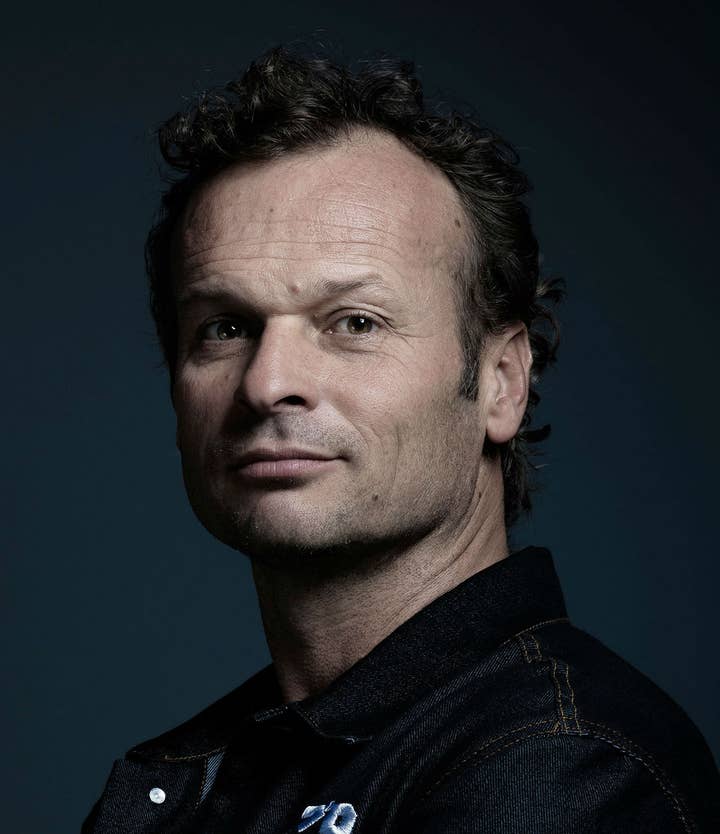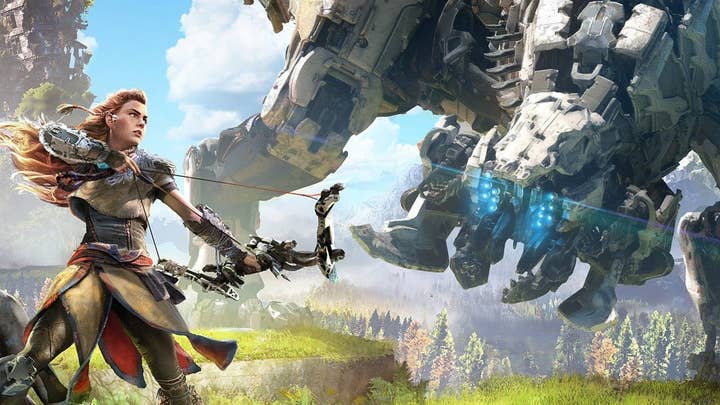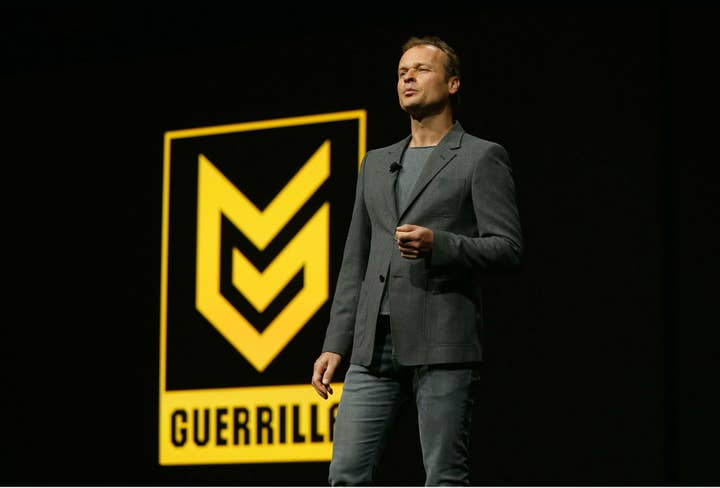People of the Year 2019: Hermen Hulst
Guerrilla Games' former MD on the journey from Killzone to Horizon Zero Dawn, and his next challenge as PlayStation's head of Worldwide Studios
More than two years have passed since Guerrilla Games launched Horizon Zero Dawn, but the studio still left its mark on the industry in 2019 -- through, of all things, Kojima productions' Death Stranding, a deeply strange game from one of the medium's few genuine auteurs.
As a creative work, Death Stranding was indisputably a product of Hideo Kojima's imagination, but as a feat of technical excellence Guerrilla played a vital role. According to former managing director Hermen Hulst, that unlikely outcome can be traced back to a few golden days when Kojima visited the company's headquarters in Amsterdam. The legendary designer was on a global tour, searching for the technology that would help bring his unique vision to life.
"We hit it off," Hulst recalls. "He ended up spending a couple of days with us, sharing experiences on game development and listening to David Bowie while touring the canals of Amsterdam."
"The tools, the engine, the editors, they are an artistic expression of the personalities that make up our team"
Somewhere on that beautiful city's waterways, Hulst turned to Guerrilla's technical director Michiel van der Leeuw and suggested giving Kojima Productions "our source code on a stick." It resulted in a close collaboration between the two studios, which benefited both Death Stranding and helped to further improve Guerrilla's Decima engine technology.
"Video games and technology are completely interlinked," Hulst says. "It's an entertainment form that only exists within the realm of digital technology, and that also means that the technology is at the root of all creative processes.
"But the technology itself is also a creative expression. The tools we have built, the engine, the editors, they are an artistic expression of the personalities that make up our team. In that regard, Guerrilla and its people -- like many other developers -- are completely interlinked with their technology. It's at the core of how we think about video games, and how we think about creative processes."

Guerrilla's relationship with Kojima Productions was a perfect expression of Hulst's ideas about game development, and a fitting way to cap his time with the company. Last month, Sony Interactive Entertainment announced that Hulst would become its new president of Worldwide Studios, after 18 years as managing director of Guerrilla Games. The studio is now in the capable hands of joint studio heads Angie Smets, Jan-Bart van Beek and Michiel van der Leeuw, and it is fair to say that it has never been healthier than right now.
The continued leadership of Jan-Bart van Beek and Michiel van der Leeuw means that Guerrilla retains a clear throughline to the origins of the company. Van der Leeuw was among the first employees of Orange Games, one of three Dutch studios that decided to combine their distinct strengths into a more formidable whole back in 2000 -- as Lost Boys Games at first, which van Beek joined in its early days, before the company changed its name to Guerrilla in 2003.
"When we came together, we set as a goal to unite all that talent and become a leading European developer," Hulst recalls. "That required us to specialise in a genre, and so we became a first-person shooter developer."
"Horizon Zero Dawn was a complete creative pivot, one that required massive changes to the studio structure"
For more than a decade, that is how Guerrilla Games was perceived. With Killzone, it created an IP that would become a technical benchmark for the PlayStation 3 in particular, and cement its reputation as one of the industry's leading experts in first-person shooters. But while that is no small achievement, it is also limiting in its own way -- if you had asked what Guerrilla's next game would be after the launch of Killzone Shadow Fall in 2013, the majority would likely have said Killzone 5.
Instead, it surprised us all with one of the very best games of the PlayStation 4 era -- a game that would fundamentally alter both the trajectory of the culture of the entire studio.
"Another key moment for the studio clearly was the launch of Horizon Zero Dawn," says Hulst. "The developer of gritty first-person shooters had created an open world full of beauty with an emotional plot. It was a complete creative pivot, one that required massive changes to the studio structure, but also one that was much desired by the team."

"The team has become a lot more diverse since the launch of Horizon Zero Dawn. More than Killzone, Horizon seems to attract devs from all sorts of backgrounds. And I think that the success of Horizon has given the team a lot of confidence. Game development will always be tough as nails, but when the going gets tough there now seems to be a healthy 'we'll figure it out' attitude."
Guerrilla now has a team of more than 300 people, and it will move into a new office in central Amsterdam next year. The time was right, Hulst decided, to take on a new challenge, overseeing PlayStation's enviable global network of studios from Europe.
"I've been very fortunate to be surrounded by great talent at Guerrilla," he says. "I've been in the trenches with them, which has given me a lot of insight in creative and development processes... The chance to work with all our other studios was a hard opportunity to ignore.
"We've always worked in a world where changes happened fast -- technically, but also creatively. This may very well be the golden age of gaming. There has never been this diversity of experiences -- from massive AAA online games that explore future worlds, to deeply personal Indie projects that explore the human condition. As PlayStation, we need to provide a platform that includes all those different voices, all those different experiences.
"We are very committed to the types of games we've been making at Worldwide Studios for the last decade: big, spectacular experiences with story and characters at the core. We will keep making these games, because we love to make them. And as a brand we are eager to branch out and start including and curating a new generation of developers, that create new and different experiences for a new generation of gamers."









